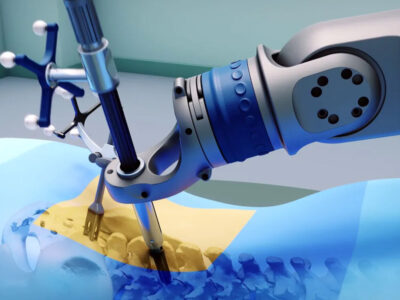The meaning of the word digestion and, therefore, of the verb “digest” comes from the Latin “digester”. Its origin comes from the word distribute, divide, that is, separate in an orderly manner. It is about converting or transforming the digestive system into foods the body can assimilate.
Our entire digestive system, from the mouth to the rectum, is intelligently designed to absorb things that it chooses to benefit our body and excrete those that are not useful to it. This occurs from the mucosa of the tongue – a digestive process that takes place in the mouth – thanks to saliva, to then continue in the stomach, where there are also absorptions of some substances and division of others.
An enormous amount occurs in the small intestine, the giant tube where the effects and phenomena of the division of elements arise. Then there are a few other substances to be absorbed by the large intestine. This is where the vast majority will be excreted, and the large intestine chooses what will not benefit our body.
When all the functions of our digestive system are distorted and altered -which selects in an orderly manner many substances that must be excreted because they are harmful- they are absorbed. This can lead to multiple diseases -from all autoimmune pathologies to cancer-especially because this process of division and selection of substances began to be altered.
The main reason that alters the selection or digestion process is poor nutrition. And, in association with this, the harmful choice of food: the more industrialised the food is, the worse it is for our intestine (due to the number of additives and addictive it contains).
The second cause by which this process is altered is stress. Although our intestine can digest and we provide excellent quality food (because it is organic, rich in micronutrients, etc.), its digestion and absorption will also be altered if our nervous system is changed. This will lead to multiple diseases, from alteration of the intestinal flora or the permeability of the intestine to immunological problems.
Foods to speed up digestion
1 – Spinach. One of the first foods needed to speed digestion is green leaves, mainly spinach. In addition to containing a large amount of fibre -perfect for feeding the intestinal flora that is often sick-it contains vitamins that can be absorbed from it during intestinal transit. For it to be beneficial, it is recommended to eat it raw, as in a salad or in a smoothie (to prepare it, put the whole leaf with the juice of a lemon and half an avocado; as a result, you will obtain a delicious and creamy combination that, cold, it looks like a kiwi smoothie).
2 – Magnesium. You can not miss it. It is found in a vibrant form as the centre of the chlorophyll molecule, giving all vegetables their green colour. Therefore, green smoothies with chard, parsley, artichoke, etc., if consumed in smoothie form and what is possible, in raw form, will significantly affect intestinal mobility. Magnesium can also be depleted in the form of salts, which attract a large amount of water to the intestine’s lumen, a natural way to help with bowel movements.
3 – Black beans are a food little consumed by Argentines. The bean has a shell that is very good for increasing intestinal transit and feeding the flora. This legume contains “mucuna”, which, in turn, contains high concentrations of a molecule called L-DOPA the metabolic precursor of dopamine, which can reach our brain and give us significant satisfaction by increasing our dopamine. Therefore, beans grow not only intestinal transit but also have other associated benefits.
4 – Coffee. Its caffeine content helps increase the contraction of the smooth muscle of the intestine. In addition, it has a diuretic and stimulating effect.
5 – Kiwi. We must consider fruits for this, due to their fibre content and their contribution of vitamins (if we eat them raw). Kiwifruit provides us with a large amount of fibre, which helps with digestion and improves intestinal transit, thus preventing constipation and, at the same time, providing an exciting level of vitamin C.
6 – Plum. It is another recommended fruit, along with other red fruits such as blackberries, raspberries and blueberries. They all have a low glycemic index: they raise blood sugar very little, which is good for preventing diabetes and not gaining weight. But, in addition, they are excellent for moving the intestine, mainly consumed in the form of smoothies or raw, to preserve all their properties.
7 – Fermented. All fermented products are ideal for good digestion. Due to the large load of lactobacillus they contain, they collaborate a lot with the intestine’s functioning. On the one hand, they improve intestinal transit because they also have fibres, but, in addition, by enhancing the flora, they also collaborate with transit.
8 – Yogurt. Preferably homemade. Thanks to its bacteria and probiotics, this food helps replenish the good bacteria in the intestine. Probiotics increase the number of bowel movements and their consistency. Due to the fermentation process used in its preparation, yoghurt improves the symptoms of processes where intestinal flora is altered.
9 – Kefir. Fermented milk or water drink is of great help for diseases related to the stomach. A remarkable health benefit of kefir is that it improves digestion, prevents constipation, and helps in cleansing the intestines. This is the reason to eat a lot of kefir when you have intestinal imbalance problems.
10 – Sauerkraut. Its probiotics are very beneficial for people with digestive problems due to a lack or poor function of digestive enzymes. Sauerkraut regulates the bacterial microflora of the intestine and controls it by reducing the number of free radicals.
Incorporating it into our diet, we are helping to improve digestive disorders, inflamed intestine or diarrhoea and constipation.
Ten foods that detoxify the body
Two clarifications:
a) Bad chewing. Chewing plays a significant role in the digestive process. If it is not chewed well, it impairs digestion and reduces the effectiveness of the other stages of the digestive process.
b) Drink water. Although it is not food, the first thing to list is water, a metabolic stimulant. Digestion is a process that requires water to be able to carry out the correct mixture of food. When you don’t drink enough water, your stools are more compact, which makes it difficult to excrete them.














Comments